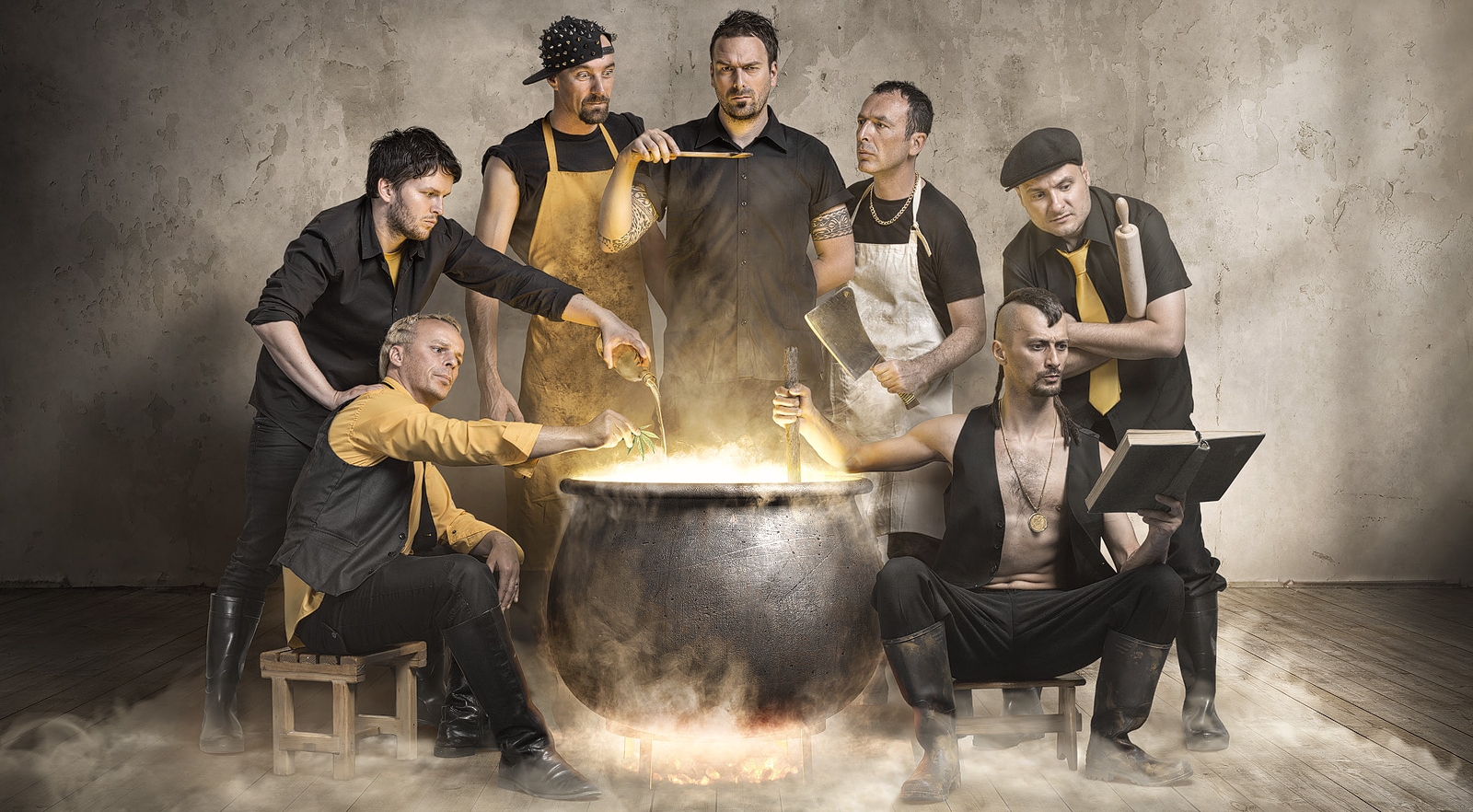While there’s little good that can come from such violence, the bravery and resistance of civilians caught up in conflict can be truly remarkable. It can also take many shapes. As Dubioza Kolektiv prepare to embark on their first Australian tour, the Bosnian band find themselves leading an unexpected charge of revitalised Balkan music. From the 1992 civil war, to what have been dubbed the ‘Bosnian Spring’ protests of 2014, Vedran Mujagic and his cohorts have learned what protest music truly sounds like.
“It’s [a] very complex story,” Mujagic says. It’s worth noting that although his reflections on Bosnia today are serious, the man himself is quick to laugh with some self-deprecating slight. “During the war – and this is extraordinary, I don’t think has happened before or after – in Sarajevo for example, a city under siege for almost four years, you had a booming cultural scene. You had hundreds of bands playing as a direct response to the situation – a genuine example of civic response to the madness that was war, and it was really something that was completely amazing.
“Fortunately, there’s a music compilation CD called Rock Under The Siege, which has some of these bands put them in one concert that was recorded, so there is some historical record.
“All these who were there present during the war, when it stopped and the situation started to become normal with electricity, water, supplies, everything that had been missing, they lost their reason to exist. They exist in certain periods as direct response to the war, as a way of showing resistance. After, the enthusiasm was lost for some years, and people were enjoying this – what we would find out later – baseless optimism. Like, peaceful times [thinking], ‘Our lives are going to be extremely nice.’ Forward a couple of years, and you see these bands start reactivating, talking about what’s going on.
“What was also caused by the war was the music industry that was weak before the war is now virtually non-existent. Bands were trying to make it on their own, to make everything DIY. This work ethic is something that we really learned, and are applying in our own work. We try to keep everything under control, to record and design and produce ourselves. I think this is the best way to do it today. And that is a lesson from that period.”
Though the Balkans are now further removed from the horror of the Bosnia-Herzegovina war, all is not tranquil. The musicians who believed – like so many others – that a time of national rebuilding was about to unfold have begun performing once again in opposition to their far-right government. Mujagic is clearly and fiercely proud of his home, and just as Dubioza Kolektiv are committed to entertaining and inspiring their fellow citizens, so too are they hoping to act as something of a warning bell for the rest of the world.
“We look at it as a chance to speak to a wider audience,” says Mujagic. “You cannot judge success by how many festivals [you play]. If you have more media attention, you have a wider audience to speak to, if more are coming to your shows, you can communicate certain messages directly to them.
“When we started, we were talking about the situation in our country, because we had right wing populist government that were really corrupt and made our lives miserable. And moving forward 13 years, you see the rise of the right wing in Western Europe, you see Trump, you see everything with refugees from the Middle East. Instead of Balkan countries becoming more normal, you see the entire world become Balkanised. It’s making you feel more urged to speak about these things, because we really know what we’re talking about.
“Right wing can really fuck you up. And we have credibility because we experienced the rise of the right wing party, and what they did to our country. The war and bloodshed, the refugees. That was directly caused by these events. And we are warning people today they’re going in this direction. We know what we talking about.”
By Adam Norris

